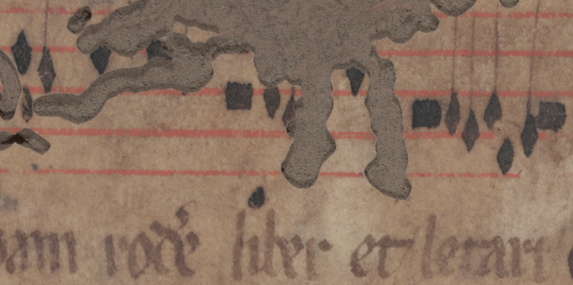When: Thursday, 6 April 2023, 2-3.45 pm
Where: Weston Library, Lecture Theatre
Speaker: Prof Kate Rudy (University of St Andrews, UK)
Admission: free, but registration is required
We are delighted to have Kate Rudy as a keynote speaker. The lecture is part of the workshop ‘Cultures of Use and Reuse. Towards a Terminological and Methodological Framework of Reframing and Recycling‘.
About the Keynote Lecture
As Hannah Ryley and others have eloquently discussed in recent articles, medieval book materials—especially parchment—were costly but also durable. These two features of parchment encouraged its reuse. In this talk I survey objects that undergo a shift in media in the process of being repurposed. Folios become objects, prints become miniatures, texts become images, folios become bindings. I will look in particular at the processes of transformation, considering cases in which the old, fragmented object is put on display, and cases in which the frame between the old and the new is smoothed over and minimalized. The status of the old material determines the length to which a craftsperson will go to either underscore, or minimalize, the disjunction between the repurposed material and its new housing.
About the Speaker
Kathryn Rudy (Kate) earned her Ph.D. from Columbia University in Art History, and a Licentiate in Mediaeval Studies from the University of Toronto. Before coming to St. Andrews, she held research, teaching, and curatorial positions in the US, the UK, Canada, The Netherlands, and Belgium. Her research concentrates on the reception and original function of manuscripts, especially those manufactured in the Low Countries, and she has pioneered the use of the densitometer to measure the grime that original readers deposited in their books. She is currently developing ways to track and measure user response of late medieval manuscripts.
How to Register for the Event
If you wish to attend the keynote lecture, please register via this link.
Contact Details
For any enquires regarding the event, please contact: JProf. Dr Julia von Ditfurth (julia.von.ditfurth@kunstgeschichte.uni-freiburg.de), Dr Hannah Ryley (hannah.ryley@ell.ox.ac.uk) or Carolin Gluchowski (carolin.gluchowski@new.ox.ac.uk).
This event this generously supported by the Oxford Berlin Research Partnership, New College, Balliol College, the Centre for the Study of the Book, the Ashmolean Museum, and the Bodleian Library. We are delighted to collaborate with Henrike Lähnemann, Alexandra Franklin, Andrew Dunning, and Jim Harris.

